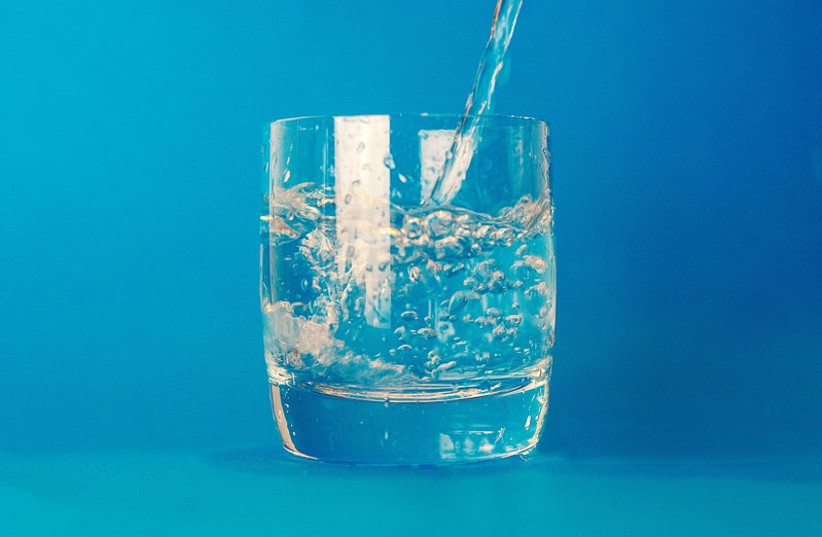The summer is at its peak, and with it comes the feeling of thirst and the danger of dehydration. A dry mouth is a sign that we need to drink more. Usually, drinking water will help but if you're still always thirsty there may be a bigger problem here.
Prolonged dryness in the mouth may indicate a disruption in saliva secretion. It’s a very common problem which increases with age. In fact, about 30% of those aged 65 and over suffer from it.
"The feeling of having a dry mouth is also called xerostomia and can be caused by physiological conditions such as stress and pressure when not drinking enough or God forbid dehydration, but it can also signal that there’s a problem with the function of the salivary glands so there’s a decrease in the amount of salivation,” explained Dr. Ayelet Zlotogorsky, Oral Medicine Specialist at Aram, the Multidisciplinary Center for Aging Medicine.
Saliva is much more necessary than it might seem
"Saliva is an essential fluid for maintaining the health of the mouth and its proper functioning," explained Zlotogorsky. "It’s essential for swallowing food, for whispering the flavors of the food we eat, for a pleasant general feeling in the mouth. Saliva protects the soft tissues from mechanical injury (for example, of hard food), is a barrier to various infections and of course, maintains the health of the teeth and gums."

Saliva is composed of at least 99% water to 1% of various ingredients, mainly proteins and various salts, which give it its unique properties. "Decreased salivation and the development of dry mouth have significant implications for oral health, general functioning and quality of life," explains Zlotogorsky.
There are many reasons for impaired salivary gland function and the development of dry mouth, including taking certain medications (the most common cause, especially in adults), radiation treatments to the head and neck area in oncology patients, autoimmune diseases such as Sjogren's syndrome, rheumatoid arthritis and lupus, infectious diseases like hepatitis C and AIDS, uncontrolled diabetes, Parkinson's and more.
Although the problem of dry mouth is more common and widespread among adults over 65 studies show that age itself has no significant effect on the rate of saliva production and composition.
In fact, the decrease in salivation is mainly related to the increase in the presence of various diseases and the increase in the number of medications taken daily, and these problems become more common over the years.
Zlotogorsky added that a continuous decrease in salivation can cause a number of health and functional problems and a significant impairment of quality of life, such as: difficulty in being able to chew and swallow food properly and as a result, there may be nutritional deficiencies and digestive problems; difficulty speaking which may lead to social or occupational difficulties, recurrent infections in the oral cavity and increased risk of tooth decay and gum disease.
When to see a doctor
"When a person feels dryness in the mouth regularly and continuously and drinking enough water and fluids, depending on his age and medical condition, doesn’t solve the problem, it’s recommended to consult an oral medicine specialist," said Zlotogorsky.
By examining the patient's medical background, medications taken regularly and certain blood tests, along with a comprehensive examination of the head and neck area and oral cavity, a doctor can diagnose whether or not there’s a significant decrease in saliva and locate the causes of the feeling of dryness.
"Sometimes, extra tests and different types are also needed to help more accurately examine the structure and size of the salivary glands, if they function properly or are defective, if there are inflammatory changes in the glands themselves or evidence of obstructive disorders in their saliva ducts," she added.
Once the diagnosis is made, ways to treat or relieve dry mouth can be tailored depending on specific considerations for each patient. In some situations, it’s possible to prescribe drugs that encourage the secretion of saliva and sometimes a change in the drug that a person takes regularly, if possible, will lead to a significant improvement in the feeling of dryness.
"When the problem is persistent and unsolvable, great importance is given to adapting tools to alleviate the difficulty created in the patient's quality of life and to reduce the appearance of secondary complications to dry mouth such as the tendency to develop oral infections, taste disturbances and more," said Zlotogorsky.
"It’s especially important to focus on the prevention of tooth decay and gum disease. Due to the frequent incidence of secondary complications, people who suffer from a significant decrease in the amount of saliva secreted continuously and chronically should be under regular periodic monitoring by an oral medicine specialist."
